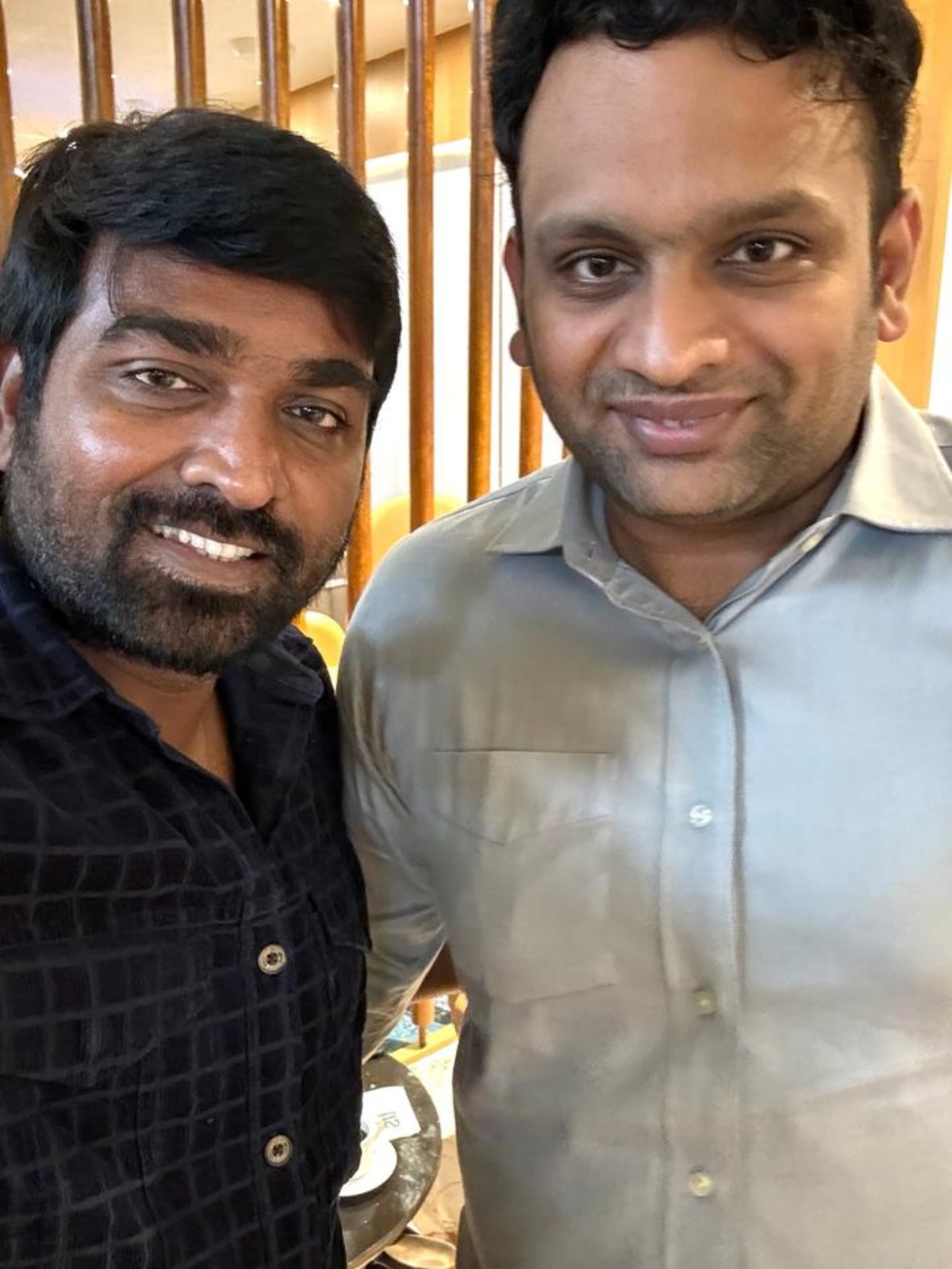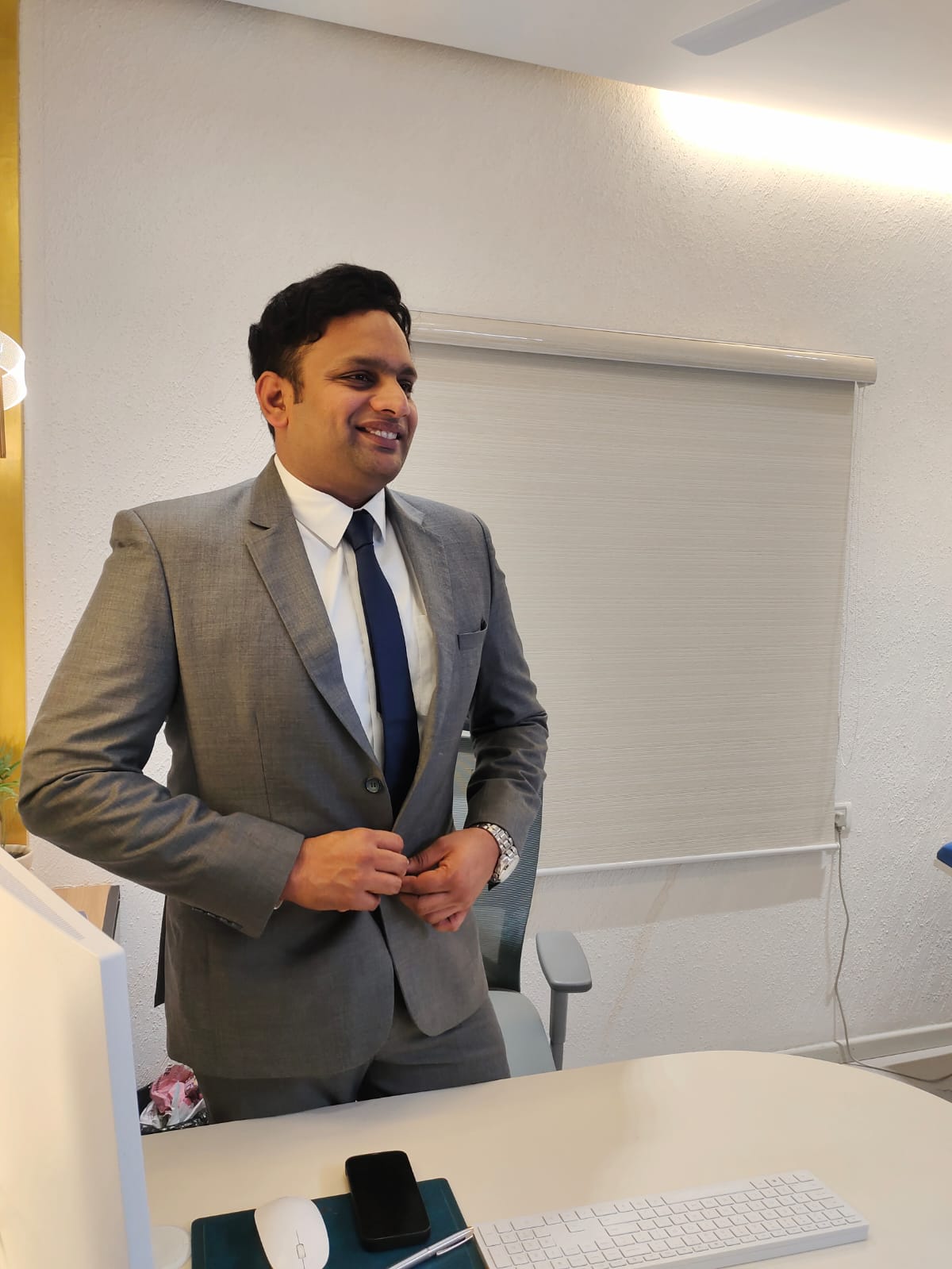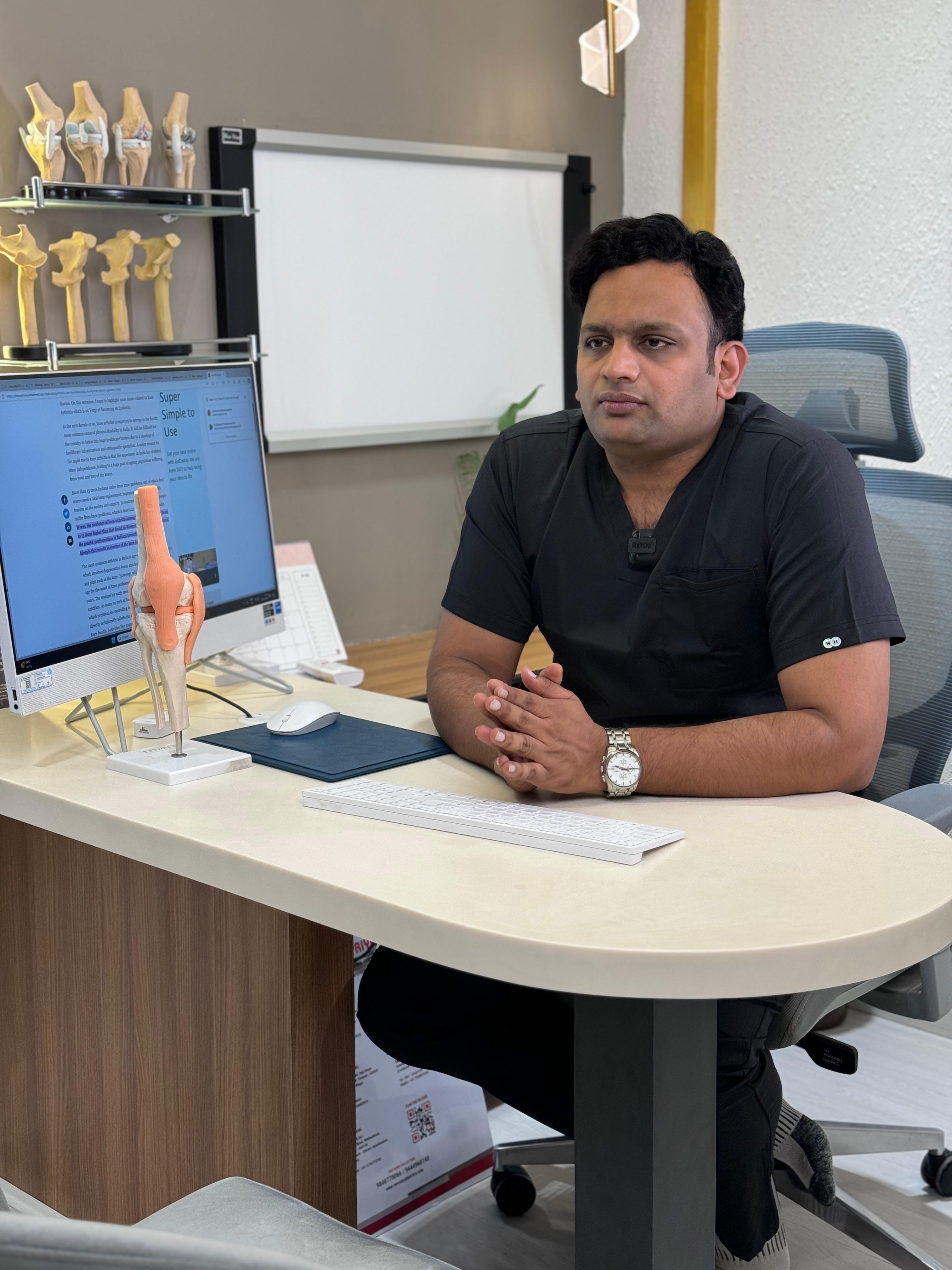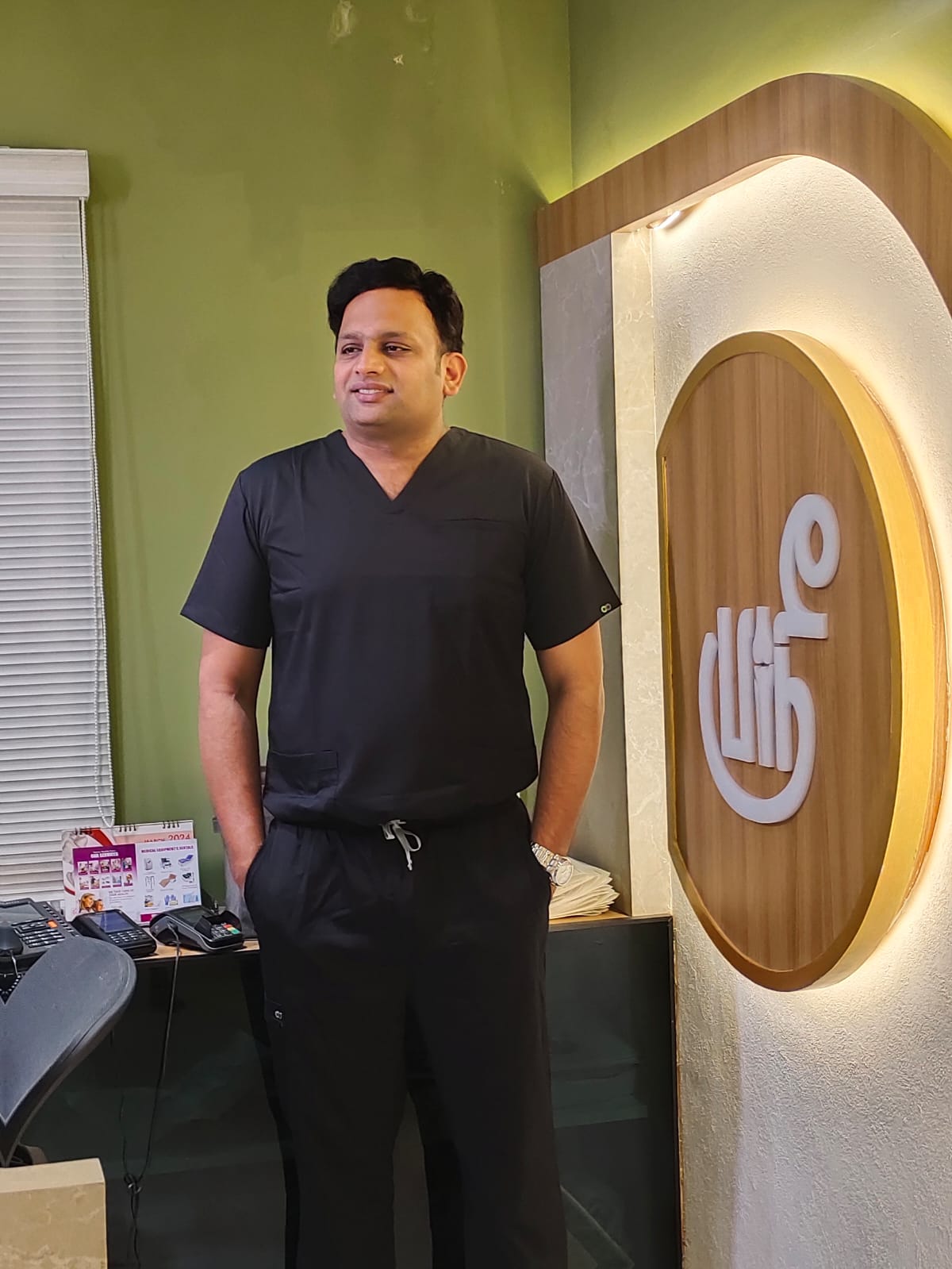What is a Frozen Shoulder?
Frozen shoulder, or adhesive capsulitis, is a condition characterized by stiffness and pain in the shoulder joint. It typically develops gradually and has three stages: freezing, frozen, and thawing.
During the freezing stage, pain increases and shoulder movement becomes limited. In the frozen stage, pain may decrease but stiffness remains, severely restricting movement. The thawing stage involves the gradual return of shoulder mobility.
The exact cause of frozen shoulder is often unclear, but it can occur after an injury or due to prolonged immobilization, such as after surgery. Risk factors include diabetes, thyroid disorders, and being over 40 years old.
Treatment focuses on pain relief and restoring movement through physical therapy, medications, and sometimes injections. In severe cases, surgical intervention may be necessary to release the tight capsule surrounding the shoulder joint. Recovery can take several months to years.
Stages of Frozen Shoulder
Freezing Stage:
- Duration: 6 weeks to 9 months.
- Symptoms: Gradual onset of shoulder pain, worsening over time. Pain is often worse at night and increases with shoulder movement. As pain intensifies, shoulder movement becomes increasingly limited.
Frozen Stage:
- Duration: 4 to 6 months.
- Symptoms: Pain may begin to diminish, but the shoulder becomes stiffer, significantly restricting movement. Daily activities involving shoulder movement become difficult. The shoulder may feel immobile and achy.
Thawing Stage:
- Duration: 6 months to 2 years.
- Symptoms: Gradual improvement in shoulder movement and a decrease in pain. Range of motion slowly returns to normal. The thawing process can be slow, but with proper treatment, full recovery is achievable.
Causes
Prolonged Immobilization:
- Shoulder immobilization following surgery, injury, or fractures can lead to stiffness and eventually frozen shoulder.
Medical Conditions:
- Diabetes: Diabetics are at higher risk, though the reason is unclear.
- Thyroid Disorders: Both hyperthyroidism and hypothyroidism are associated with frozen shoulders.
- Cardiovascular Disease: There is a higher incidence of frozen shoulders in individuals with heart disease.
Parkinson’s Disease: Neurological conditions can increase the risk.
Age and Gender:
- More common in individuals over 40 years of age and more prevalent in women than men.
Injury or Surgery:
- Shoulder injuries (e.g., rotator cuff tear) or surgeries that require immobilization can trigger frozen shoulders.
Inflammation:
- Chronic inflammation within the shoulder joint can contribute to the development of frozen shoulder.
Risk Factors
- People over 40 years old are at higher risk.
- Women are more likely to develop frozen shoulders than men.
- Diabetes: Diabetics have a significantly higher risk, and the condition may be more severe and prolonged.
- Thyroid Disorders: Conditions like hyperthyroidism and hypothyroidism are linked to frozen shoulders.
- Cardiovascular Disease: Heart disease and other cardiovascular issues can increase risk.
- Parkinson’s Disease: Neurological conditions, including Parkinson’s, are associated with a higher incidence.
Immobilization of the shoulder due to surgery, injury, or fractures can lead to stiffness and increase the risk of frozen shoulder. - Prior injuries to the shoulder, such as rotator cuff tears, can predispose an individual to frozen shoulder.
- Tuberculosis: Associated with higher risk.
- Rheumatoid Arthritis: Inflammatory conditions can contribute to frozen shoulders.
- Hormonal Changes: Conditions or treatments causing hormonal fluctuations, such as menopause, may increase risk.
Symptoms
Freezing Stage:
- Gradual onset of shoulder pain, which worsens over time. Pain is often severe, especially at night.
- Increasing stiffness in the shoulder, making it difficult to move.
- Lasts 6 weeks to 9 months.
Frozen Stage:
- Pain may begin to decrease, but it can still be present, especially during shoulder movement.
- Significant stiffness, with a marked reduction in the range of motion. Activities like reaching overhead, behind the back, or to the side become difficult or impossible.
- Lasts 4 to 6 months.
Thawing Stage:
- Pain gradually subsides.
- Gradual improvement in shoulder movement. Range of motion slowly returns to normal or near-normal.
- Lasts 6 months to 2 years.
General Symptoms Across All Stages:
- Difficulty moving the shoulder in all directions.
- The shoulder may feel weak due to disuse and pain.
- Difficulty performing everyday tasks such as dressing, lifting objects, and reaching for items.
Diagnosis
Medical History:
- The doctor will ask about the onset and progression of symptoms, any previous shoulder injuries, surgeries, or medical conditions such as diabetes or thyroid disorders.
Physical Examination:
- The doctor will assess both active and passive range of motion in the shoulder. Active motion involves the patient moving their shoulder, while passive motion involves the doctor moving the shoulder for the patient.
- The doctor will evaluate the pain level during various movements to identify limitations and discomfort.
- Muscle strength around the shoulder joint may be tested to check for weakness.
Imaging Studies:
- While X-rays cannot diagnose frozen shoulders, they can rule out other conditions such as arthritis or fractures.
- These imaging techniques can provide detailed views of the soft tissues around the shoulder, helping to rule out other potential causes of shoulder pain and stiffness, such as rotator cuff tears.
Clinical Criteria:
- Diagnosis is often based on the characteristic pattern of symptoms and physical examination findings. The presence of pain and significant limitation in both active and passive range of motion without other underlying shoulder conditions is indicative of frozen shoulder.
Treatment Options
Treatment for frozen shoulder (adhesive capsulitis) aims to alleviate pain and restore the shoulder’s range of motion. Treatment approaches vary based on the stage and severity of the condition.
Non-Surgical Treatments
1.Medications:
- Pain Relievers: Over-the-counter pain medications such as acetaminophen or nonsteroidal anti-inflammatory drugs (NSAIDs) like ibuprofen can help manage pain and inflammation.
- Corticosteroid Injections: Injecting corticosteroids into the shoulder joint can reduce pain and inflammation, especially in the freezing stage.
2. Physical Therapy:
- Stretching Exercises: Gentle stretching exercises improve shoulder flexibility and range of motion.
- Strengthening Exercises: As pain decreases, strengthening exercises help maintain shoulder stability and function.
- Manual Therapy: Physical therapists may use techniques to mobilize the shoulder joint.
3. Heat and Cold Therapy:
- Applying heat or ice packs to the shoulder can help reduce pain and inflammation.
4. Transcutaneous Electrical Nerve Stimulation (TENS):
- TENS units deliver small electrical currents to the affected area, which may help reduce pain.
Surgical Treatments
1. Shoulder Manipulation:
- Under anesthesia, the doctor moves the shoulder joint through its range of motion to break up adhesions and scar tissue. This procedure can help restore movement but may cause some discomfort.
2. Arthroscopic Surgery:
- Minimally invasive surgery where small instruments are used to remove scar tissue and adhesions from inside the shoulder joint. This can improve range of motion and reduce pain.
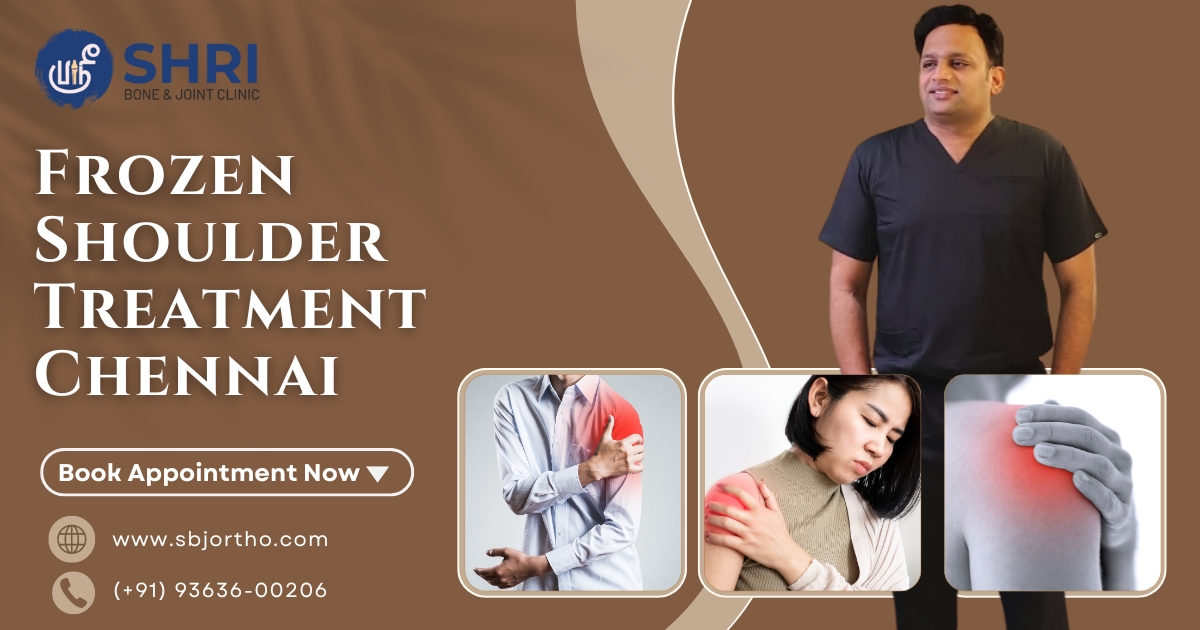
Rehabilitation and Recovery
Rehabilitation and recovery from frozen shoulders focus on gradually restoring mobility and strength. Physical therapy is key, starting with gentle stretching exercises to improve range of motion and gradually incorporating strengthening exercises as pain subsides. Consistency with these exercises, both in therapy sessions and at home, is crucial.
Heat and cold therapy can help manage pain and reduce inflammation during rehabilitation. Techniques like transcutaneous electrical nerve stimulation (TENS) and manual therapy may also be used to alleviate discomfort and enhance mobility.
Recovery can take several months to years, with progress varying by individual. Regular follow-up with a healthcare provider ensures proper monitoring and adjustment of the treatment plan. Long-term management includes continued exercise to maintain shoulder flexibility and addressing any underlying conditions, such as diabetes or thyroid disorders, to prevent recurrence. Adherence to the rehabilitation program is essential for a full recovery.
Post-Treatment Care
Post-treatment care for frozen shoulders is crucial to ensure a full recovery and prevent recurrence. It focuses on maintaining shoulder mobility, managing pain, and gradually returning to normal activities.
- Continuing with prescribed stretching and strengthening exercises is essential to maintain and improve shoulder mobility. Regular therapy sessions and a home exercise program are beneficial.
- Using over-the-counter pain relievers or anti-inflammatory drugs can help manage any residual pain. Heat and cold therapy can also be used to reduce pain and inflammation.
- Avoiding activities that may strain the shoulder and gradually returning to normal activities can prevent re-injury.
- Regular check-ups with your healthcare provider are important to monitor progress and address any issues that may arise.
- Maintaining a healthy lifestyle, including a balanced diet and regular exercise, can support overall recovery.
- Learning about proper shoulder mechanics and taking preventive measures to avoid future injury is essential.
Expected Recovery Timeline
The recovery timeline for frozen shoulder (adhesive capsulitis) can vary widely depending on various factors, including the severity of the condition, adherence to treatment, and individual factors like age and overall health. Generally, the recovery process can be divided into three stages:
- Freezing Stage (6 weeks to 9 months): During this stage, pain and stiffness gradually increase, and shoulder mobility decreases. Treatment focuses on pain management and gentle range-of-motion exercises.
- Frozen Stage (4 to 6 months): Pain may begin to diminish, but stiffness is pronounced, severely limiting shoulder movement. Physical therapy becomes more intensive to improve range of motion.
- Thawing Stage (6 months to 2 years): Shoulder mobility gradually improves, and pain subsides. Continued physical therapy and home exercises are crucial for restoring full range of motion.
Tips for Maintaining Shoulder Health
- Include exercises that strengthen the muscles around the shoulder joint, such as rotator cuff exercises, to improve stability and prevent injuries.
- Maintain good posture to reduce strain on the shoulders. Avoid slouching or hunching over.
- Be mindful of repetitive shoulder movements and take breaks to rest your shoulders during activities that require overhead motion.
- When lifting objects, use your legs instead of your back and shoulders. Hold objects close to your body to reduce strain on your shoulders.
- Warm up your shoulder muscles with gentle stretching before engaging in physical activities that involve shoulder movement.
- Sleeping on your side can compress the shoulder joint. Try sleeping on your back with a pillow under your shoulder for support.
- Stress can cause muscle tension, which can affect your shoulders. Practice stress-relieving activities such as yoga or meditation.
- Excess weight can put strain on your shoulders. Maintain a healthy diet and exercise regularly to manage your weight.
- Proper hydration helps maintain the elasticity of muscles and tendons, which can reduce the risk of shoulder injuries.
- If you experience pain or discomfort in your shoulders, take it as a sign to rest and avoid activities that aggravate the pain.
Why Choose Shri Bone & Joint Clinic for Frozen Shoulder Treatment in Chennai, India?
Shri Bone & Joint Clinic in Chennai, India, is the preferred choice for frozen shoulder treatment due to the reputation for having the best orthopedic specialists in Chennai.
These specialists are highly skilled and experienced in diagnosing and treating frozen shoulder, providing patients with expert care and achieving excellent outcomes. The clinic offers comprehensive treatment options, including conservative therapies and advanced surgical techniques, tailored to meet the individual needs of each patient.
Our patient-centered approach ensures that patients receive personalized care and attention throughout their treatment journey. With state-of-the-art facilities and a commitment to excellence, Shri Bone & Joint Clinic is dedicated to providing the highest quality care for patients with frozen shoulders, making it the top choice for orthopedic care in Chennai.
Best Doctor for Frozen Shoulder Therapies in Chennai, India
Shri Bone & Joint Clinic, under the expert care of Dr. Shriram Krishnamoorthy, is renowned for providing the best frozen shoulder therapies in Chennai, India.
Dr. Krishnamoorthy is a leading orthopedic specialist known for his expertise in total shoulder replacement and reverse shoulder replacement surgeries, offering comprehensive treatment options for patients with severe frozen shoulders.
His advanced surgical skills and patient-centered approach ensure that each patient receives personalized care and achieves the best possible outcomes.
Our clinic is equipped with state-of-the-art facilities for diagnosing and treating frozen shoulders, including advanced imaging technology and surgical equipment. Dr. Krishnamoorthy’s dedication to excellence and commitment to patient care make Shri Bone & Joint Clinic the top choice for frozen shoulder treatment in Chennai, particularly for those requiring total shoulder replacement or reverse shoulder replacement surgeries.
Cost of Frozen Shoulder Treatment in Chennai, India
The cost of frozen shoulder treatment in Chennai, India, can vary depending on several factors, including the severity of the condition, the chosen treatment approach, the healthcare provider, and the hospital or clinic.
In Chennai, India, both physiotherapy and surgery for frozen shoulder are readily available at highly affordable rates, typically ranging from Rs 1,500 to Rs 5,000 per session. Get the best Frozen Shoulders Treatment at an affordable price from Shri Bone & Joint Clinic in Chennai, India.
What is the best remedy for frozen shoulders?
The best remedy for frozen shoulder includes physiotherapy, medication, corticosteroid injections, and in severe cases, surgical intervention.
What is the root cause of frozen shoulders?
The root cause of frozen shoulder is often unclear but can result from injury, immobilization, underlying medical conditions, or inflammation.
How to repair a frozen shoulder?
Treatment may include physical therapy, medications, corticosteroid injections, and in severe cases, shoulder manipulation or surgery.
How do you unfreeze a frozen shoulder?
Unfreezing a frozen shoulder involves physical therapy, gentle stretching, pain management, and, in some cases, surgical intervention
Is massage good for frozen shoulders?
Yes, gentle massage can help improve blood flow, reduce muscle tension, and complement other treatments for frozen shoulders.
Is heat good for frozen shoulders?
Yes, applying heat can help relax muscles, improve blood flow, and reduce stiffness in a frozen shoulder.
What food is good for frozen shoulders?
A diet rich in anti-inflammatory foods like fruits, vegetables, whole grains, and healthy fats may help manage frozen shoulders.
What is the first line treatment for frozen shoulder?
The first-line treatment for frozen shoulder includes physical therapy, gentle stretching, pain management, and anti-inflammatory medications.
Is frozen shoulder permanent?
Frozen shoulders are usually not permanent and can improve with time, treatment, and proper management of symptoms.
Can I exercise with a frozen shoulder?
Yes, gentle exercises prescribed by a healthcare provider or physical therapist can help improve mobility and reduce stiffness in a frozen shoulder.
Better Health Care is Our Mission
Phone
Shri Bone & Joint clinic
No.14/31, 3rd Avenue Indira Nagar, Adyar, Chennai-600020
Phone: 044 4505 5509



